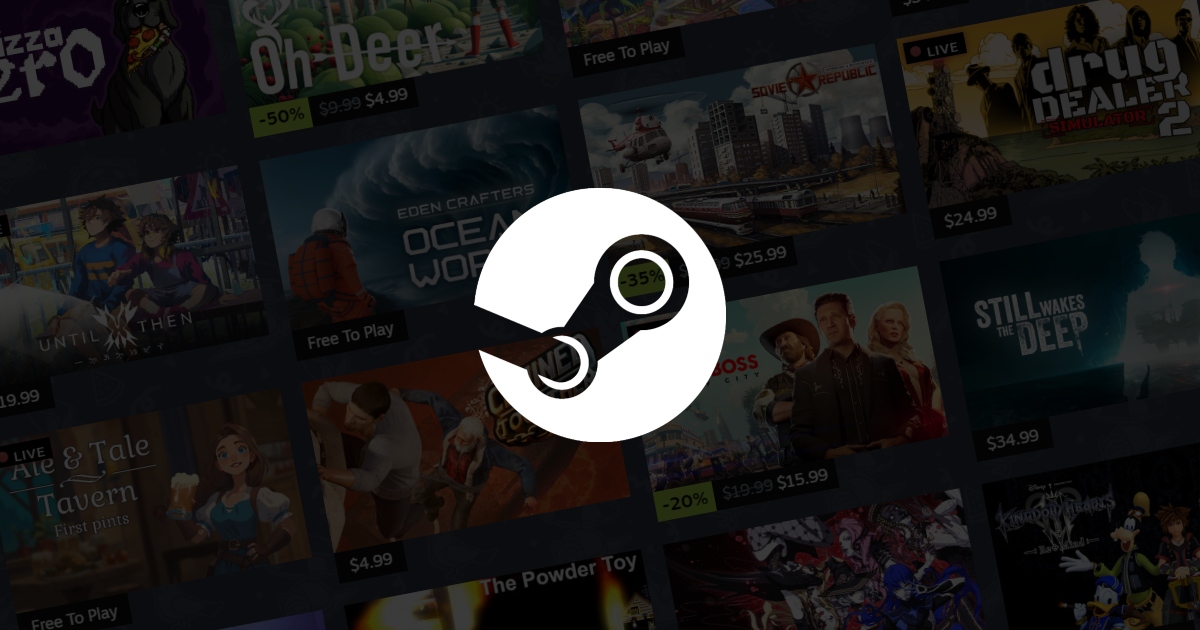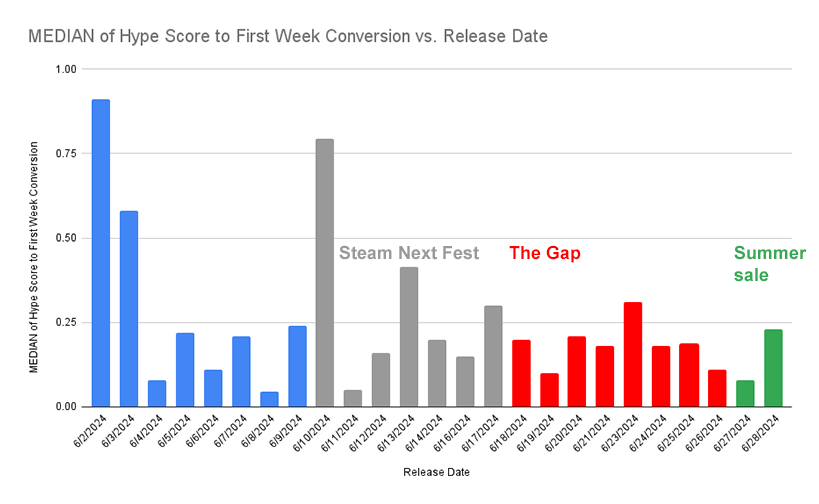Game marketing expert Chris Zukowski has found out that many developers try to launch their games during the gap between Steam’s major events. So is this really a good release window or is it better to pay closer attention to other things?

Zukowski shared the results of his detailed analysis in a new post on his How To Market A Game blog. The research is based on the GameDiscoverCo’s Hype score, a complex metric that combines all sorts of pre-release data (followers, wishlists, etc.) to rank upcoming games on Steam and gauge player interest.
Last month, there were two major events on Steam: Next Fest (June 10-17) and Summer Sale (June 27-July 11). Zukowski found out that around 53 games launched every day during the gap between them (the week of June 18-26), bringing the total to 483. For comparison, Next Fest and Summer Sale (still ongoing) saw 38 and 44 titles released per day, respectively.
Using the Hype data, Zukowski filtered out low-performing games (with less than 2,000 wishlists) to see an even more dramatic difference in the number of releases per day between the gap and those big events.
It appears that many developers (with not the lowest Hype scores) bet on this release window, making it a busy period compared to other weeks in June. However, picking a release date during the gap may not be such a great idea.
First, there are only 10 slots on Steam’s Popular Upcoming chart, which is one of the core algorithmic visibility features on the platform. As Zukowski pointed out, “In those first 3 days of the gap there were more than 10 ‘hyped’ games released which means that there were games that could have appeared on them were crowded out.”
Second, GameDiscoverCo data shows that games released during the gap have a fairly low conversion (slightly above the median) of their Hype scores to first-week sales. See the image below:

Chart: How To Market A Game
Zukowski concluded that games launching right after Next Fest have no clear advantage. Instead of overthinking and analyzing too much for picking the “right” release date, developers should pay more attention to other things:
- Collecting as much wishlists before launch as possible;
- Selling enough units at launch to appear in the New & Trending tab;
- Picking the right genre based on market analysis and not solely on personal preferences (i.e. not trying to conquer overcrowded and underperforming niches like 2D pixel games with platforming and puzzle tags).
“Pleasing the Steam algorithm is the most important thing,” Zukowski noted. “Just because your individual game has some recent momentum does not influence the algorithm.”
For more data points and insights, check out the full blog post.
